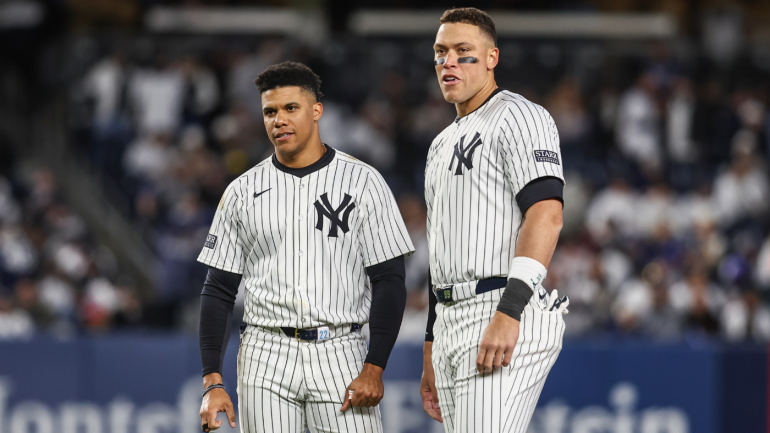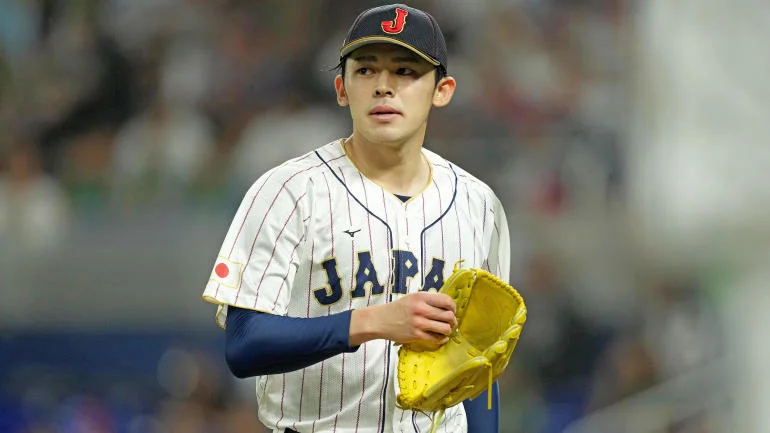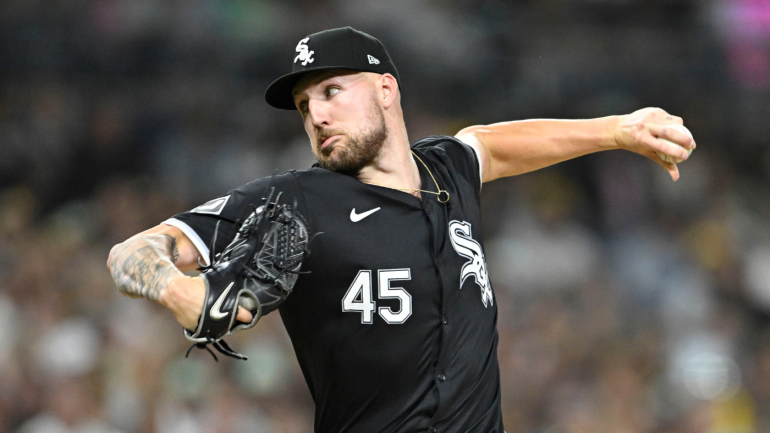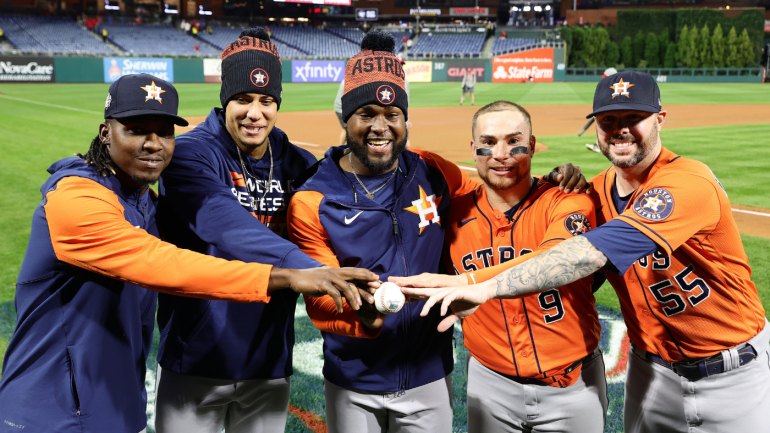Making a case for Gary Sheffield in the Hall of Fame.
When a player says they’ve played for eight teams over the course of their career, the first thing that usually comes to mind is a journeyman who bounced around from team to team in between trips to the minor leagues. But in some unique circumstances, that player is someone who had a long, successful big-league career, but just couldn’t stick around in one place for more than 5-6 years.
Gary Sheffield retired in 2009 after a 22-year career that included stops with the Brewers, Padres, Marlins, Dodgers, Braves, Yankees, Tigers, and Mets. Despite never winning an MVP award, Sheffield was among the game’s best hitters over the course of his entire career, making 9 All-Star appearances, and finishing in the top ten of the MVP voting seven times. A member of the exclusive 500 home run club, Sheffield’s Hall of Fame candidacy has never gained traction because of a 2004 interview with Sports Illustrated where he admitted to using “the cream” in 2002, a type of Performance Enhancing Drug. According to Ryan Thibodaux’s Hall of Fame Tracker, right now, Sheffield is tracking at 10.7% of the Hall of Fame vote in his fourth year of eligibility, well below the needed 75% to gain induction, and closer to the 5% needed to remain on the ballot. Below are some arguments as to why Gary Sheffield should be considered by baseball writers when filling out their Hall of Fame ballots.
1. The Statistical Criteria: By any measurement, Sheffield was one of the greatest hitters in the history of baseball, with the following career numbers.
- 60.3 WAR; 79.9 Offensive War is 35th all-time
- 2576 G, 46th all-time
- 1636 R, 39th all-time
- 2689 H, 69th all-time
- 467 2B
- 509 HR, 26th all-time
- 1676 RBI, 28th all-time
- 253 SB
- 1475 BB, 21st all-time. 130 intentional walks are 71st all-time
- 292/.393/.514, .907 OPS is 58th all-time, OBP is 88th all-time
- 140 OPS+. 78th all-time
- 4737 Total bases, 34th all-time
- 1,003 Extra base hits, 39th all-time
- 111 Sacrifice Flies, 13th all-time
Not only does Sheffield rank within the top 100 all-time in almost all of baseball’s major statistical categories, but his 162 game averages of 32 HR, 105 RBI, and 103 runs all represent elite, Hall of Fame level numbers as well.
2. The Honors/Awards Component: Hall of Fame voters love awards, and Sheffield has no shortage of career achievements. Sheffield appeared in 9 All-Star games, won five Silver Sluggers and a batting title, and was part of the 1997 World Series Champion Miami Marlins.
Throughout his career, Sheffield frequently appeared in the top ten of his league’s offensive leaderboards, ranking in the top ten in Offensive WAR, runs scored, and slugging % five times, AVG four times, OBP ten times, OPS and home runs seven times, RBI six times, and walks and OPS+ nine times.
Additionally, when using Bill James’ Hall of Fame Statistics, the average Hall of Fame Monitor score for a Hall of Famer is 100; Sheffield’s is 158, ranked 79th all-time. For Hall of Fame Standards, the average Hall of Famer has a score of 50; Sheffield’s is 61, 30th all-time. Along similar lines, when looking at similar batters for Sheffield’s career, the top ten list is made up almost entirely of current or future Hall of Famers, including Chipper Jones, Mel Ott, Reggie Jackson, Carlos Beltran, Ken Griffey, Mickey Mantle, Billy Williams, Frank Robinson, and Frank Thomas.
3. Equal Opportunity for Steroid Users: Let me preface this by saying I do think that Barry Bonds and Roger Clemens deserve 100% to be in the Baseball Hall of Fame and that both deserve to be in before Sheffield. However, when Bonds and Clemens have support in the 60% and up range, and Sheffield is stuck in the 10% voting rage, there is a larger issue at hand of voters picking and choosing which PED associated candidates to vote for. Like Bonds, Sheffield never failed a drug test, and like Bonds, Sheffield is known for having used “the cream.” Basically, if you think that PED users or those who were accused of PED use should not be in the Hall of Fame, then vote as such across the board. What voters should not do is to specifically choose to vote for those associated with PEDs based on circumstance, excluding those like Sheffield, but voting for Sammy Sosa, or Manny Ramirez, who failed multiple drug tests in his career.
4. The Vladimir Guerrero Factor: In Vladimir Guerrero’s second year on the Hall of Fame ballot, he is projected to cruise into Cooperstown, currently tracking at 94.97 on Ryan Thibodaux’s BBHOF Tracker. Elsewhere, Sheffield is barely hanging on, tracking at 10.7% in his fourth year on the ballot. While many fans list Guerrero as a fan favorite and as one of the most exciting players they’ve ever seen play the game, when you look at the numbers, Sheffield’s career is not only is comparable to Guerrero’s but in many aspects is better.
Sheffield: 60.3 WAR, 2576 G, 1636 R, 2689 H, 467 2B, 509 HR, 1676 RBI, 253 SB, 1475 BB, .292/.393/.514, 140 OPS+
Guerrero: 59.3 WAR, 2147 G, 1328 R, 2590 H, 477 2B, 449 HR, 1496 RBI, 181 SB, 737 BB, .318/.379/.553, 140 OPS+
Both players were 9x All-Stars, and while Guerrero does have an MVP Award on Sheffield, Sheffield has the World Series ring Guerrero was never able to win in Anaheim. While Guerrero doesn’t have any PED accusations attached to his name, the fact Sheffield had an arguably better career but is sitting below 15% of the vote, while Guerrero is likely to cruise in to the Hall of Fame above 90%, seems illogical from a statistical perspective.
5. Too Much Focus on Morality Clause: By all accounts, Sheffield was not a well-liked player during his career, clashing with the media, and accusing everyone from Bud Selig to Joe Torre of being racist when he didn’t get his way. This is in direct conflict with the Hall’s “morality clause,” which older voters tend to take very seriously. Here’s the thing though; the Hall of Fame is already littered with players who don’t fit under the Hall’s “morality clause.” Ty Cobb was a well-known racist, Mickey Mantle was a well-known alcoholic, Roberto Alomar spat in an umpire’s face, and Gaylord Perry was a known cheater. Something tells me that the lack of support for Sheffield is that plain and simple, the media didn’t like him or thought that he wasn’t pleasant to cover during the course of his career. Instead of focusing on what Sheffield did or said off the field, voters should instead focus about what he did on the field, which at the end of the day is what the Hall of Fame is designed for.




